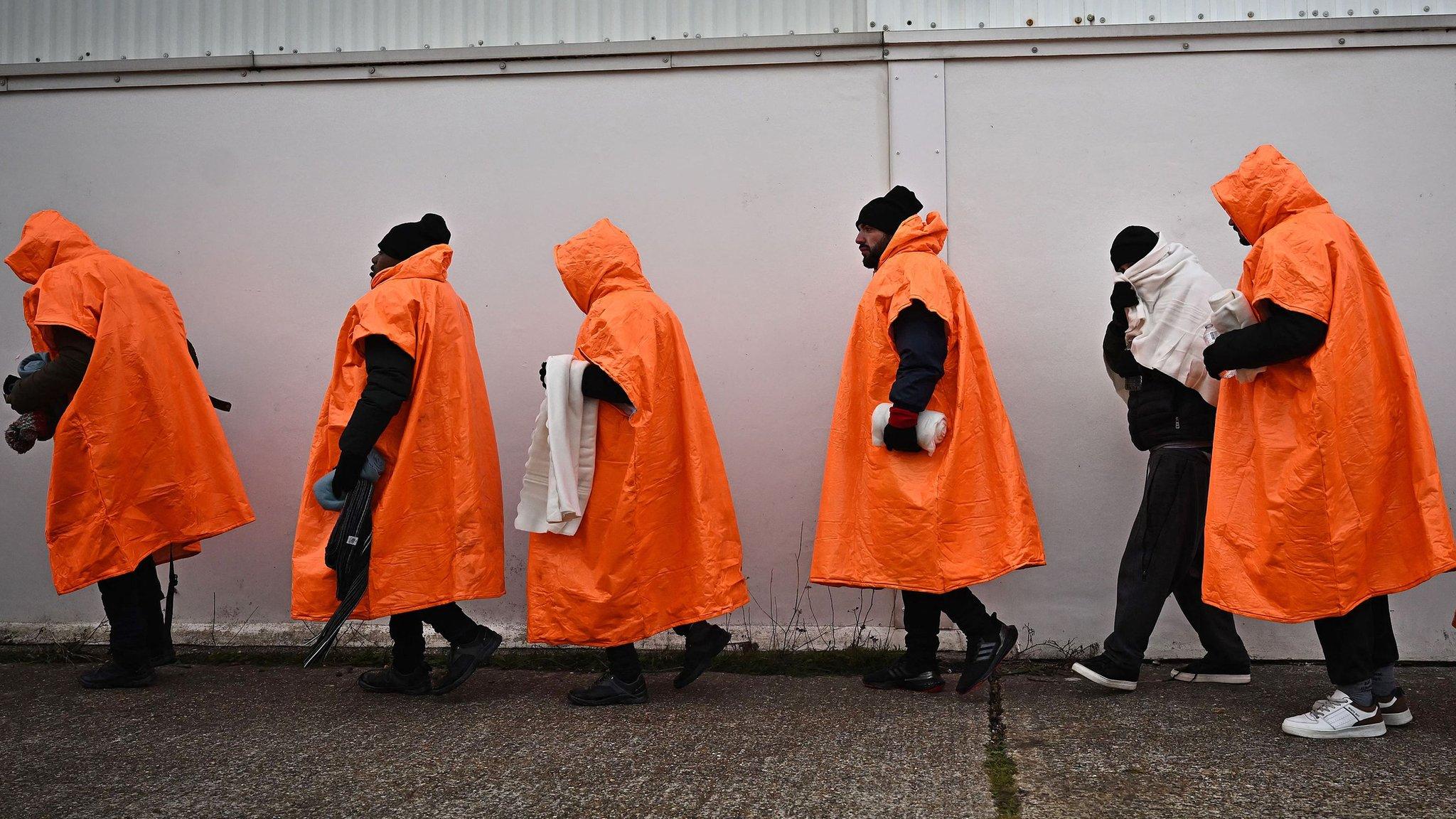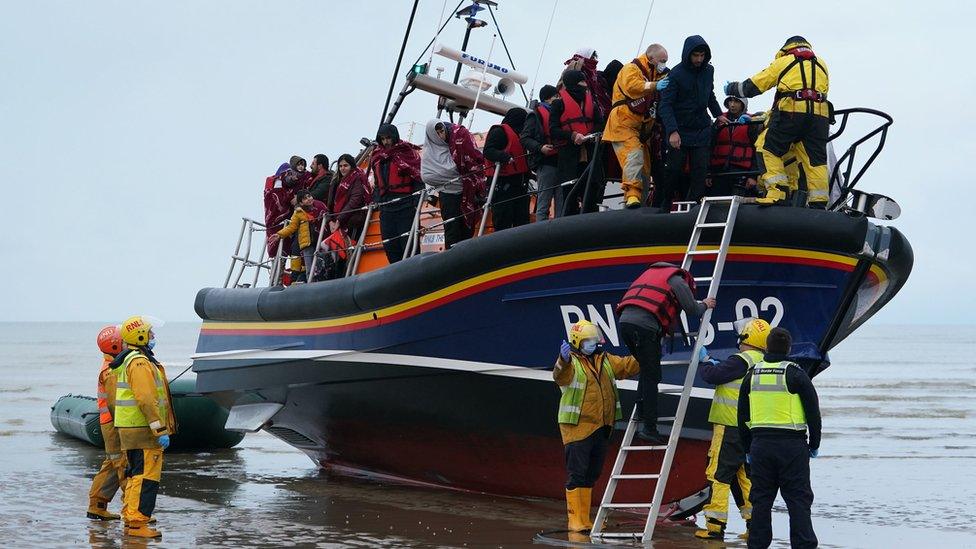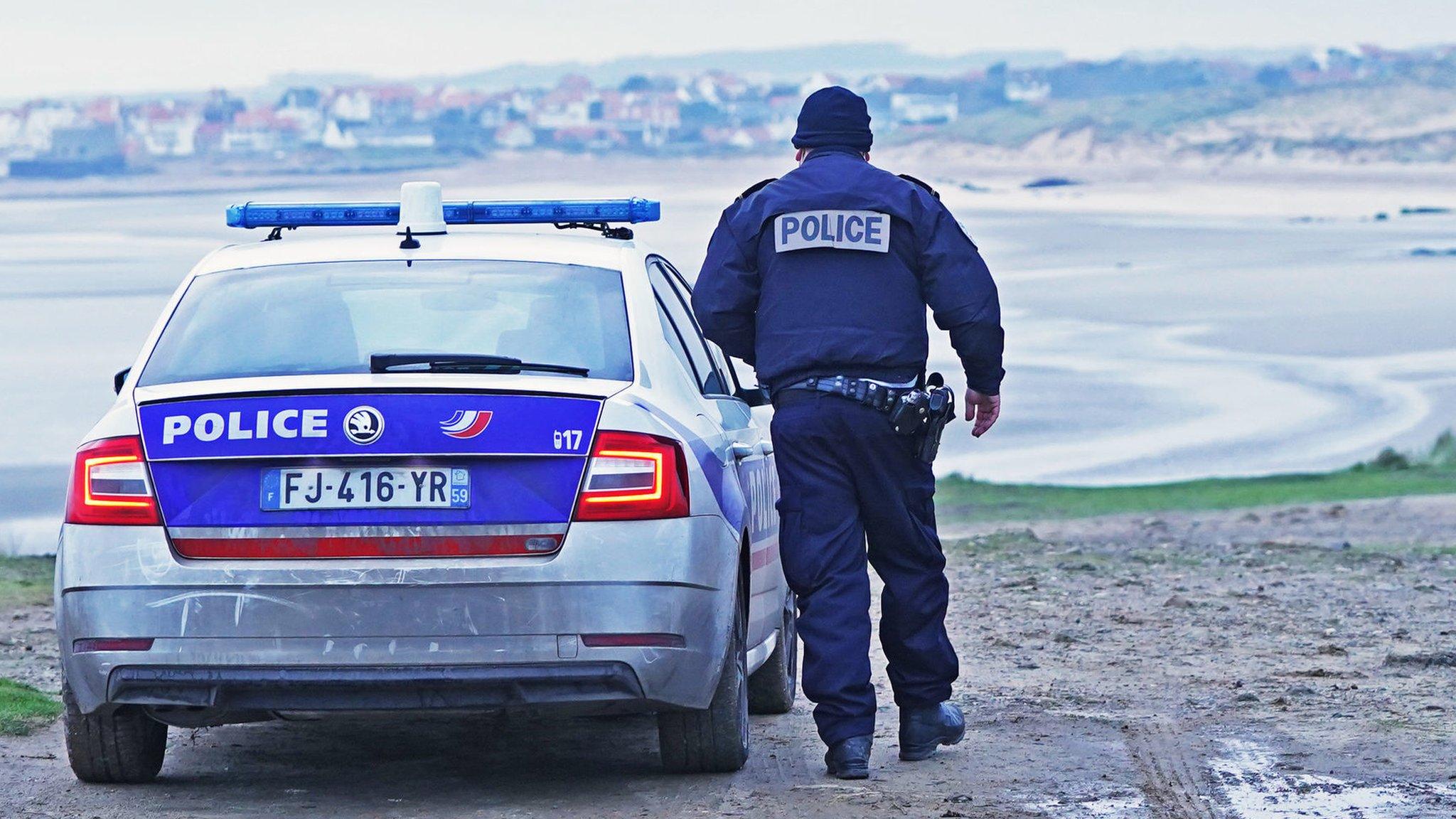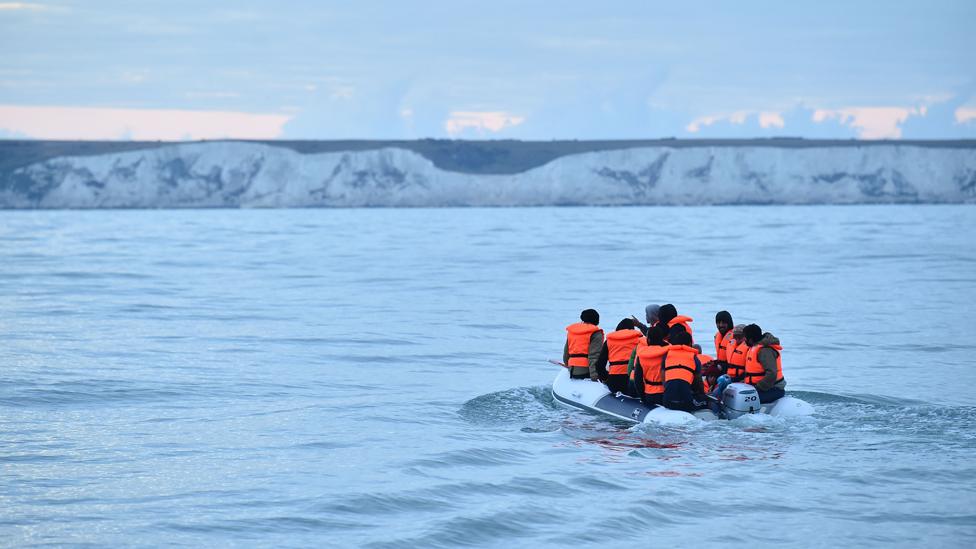Channel migrants: Why politics is dominating the debate on migrants
- Published

France has so far rejected British calls for joint border patrols on the French coast
In France, in Brussels and the UK, there have been expressions of remorse and sadness at the loss of human life in the Channel. Yet, at the same time, politics is interwoven into the migration and asylum debate wherever you look.
First: domestic politics. Boris Johnson promised to "take back control" of UK borders after Brexit, but the influx of dinghy arrivals across the Channel doesn't exactly scream watertight borders. And the EU is keen to point out that the "skinny" Brexit deal Mr Johnson wanted, keeping Brussels very much at arms' length, didn't allow for a migration agreement that might have come in useful now.
As for Emmanuel Macron, he is heading into a hotly contested presidential election in France. Under pressure from the political right and the far right, he's keen to come across as a security-conscious nationalist. That's why he cited "national sovereignty" when he once again refused the British offer of joint patrols on French beaches and waters. His government mutters that the UK should understand the sovereignty argument in the light of its Brexit vote.
The UK Home Secretary Priti Patel says she'll send officials and law-enforcement officers to Paris on Friday to intensify joint cooperation and intelligence-sharing. But you need trust to work hand-in-hand and, right now, UK-French relations are frosty to say the least.
France was perceived as bad cop by the UK during the often fraught Brexit negotiations with the EU. Post-Brexit, the two sides are at loggerheads over a small number of fishing permits France accuses the UK of holding back on (the UK denies the allegation). And there's bad blood between the two over the implementation of the Northern Ireland Protocol, signed by the EU and UK as part of the Brexit divorce deal to safeguard peace and avoid a hard customs border down the island of Ireland.
Adding to those tensions, France is still smarting from the recent security agreement between the UK, US, and Australia, which it only found out about at the very last moment - and which cost Paris a lucrative submarine contract.
Combating people-smuggling and deterring the desperate from risking their lives at sea becomes even more complicated, when you stand back a bit more.
President Macron sees the Channel crossing dilemma as a pan-European challenge, as much as a bilateral issue with the UK.
He may have spurned UK offers of extra boots on the ground along France's sprawling northern coastline, but he has called on Brussels for help. After all, says Mr Macron, the asylum-seekers and others in Calais, hoping to head for the UK, didn't appear by magic. They will have crossed other EU countries to get here.
BBC Newsnight: Lewis Goodall reports from Dunkirk's new migrant camp.
Mr Macron knows that "irregular migration", as it's often referred to, is all-too familiar at the EU's various external borders. Remember the 2015 refugee and migrant crisis, affecting the bloc's southern rim? And recently Poland asked for EU help in the East along the border with Belarus.
Irregular migration to richer countries is not going to disappear as long as there's poverty, war, persecution and environmental refugees in other parts of the world.
So yes, the issue is well-known to Brussels, but so is the year-on-year failure of member states to agree on what should be done.
Germany has been open to taking in large numbers of refugees and asylum-seekers. Its government-in-waiting, taking over from Angela Merkel, wants to promote more legal migration as a means of deterring men, women and children from making perilous sea-crossings in flimsy, overcrowded dinghies. But Hungary and others in central and eastern EU states favour the "fortress Europe" option, making external borders as impenetrable as possible.
In the meantime, NGOs, human rights lawyers, members of the public sickened by the tragic loss of life and a big chunk of French media - take the popular Le Monde newspaper for example - are saying enough is enough. They demand that France, the UK and other EU member states put aside politics, roll up their sleeves, and actually do something together to save lives.
- Published13 December 2023

- Published22 November 2021

- Published25 November 2021

